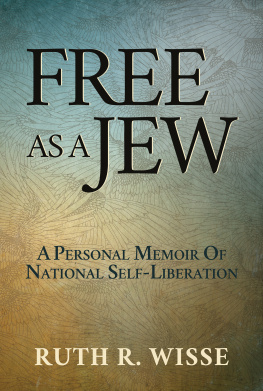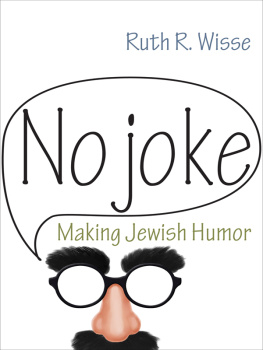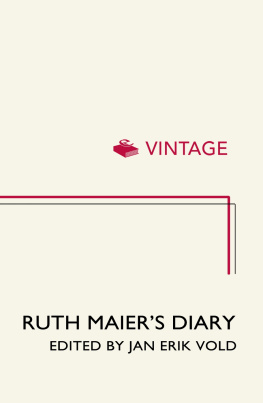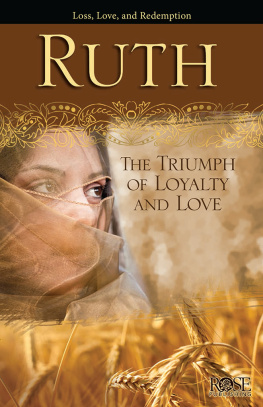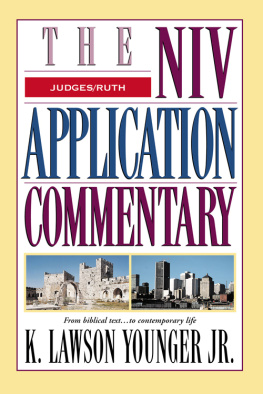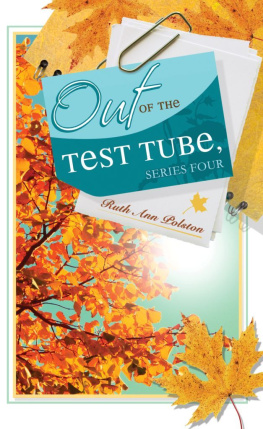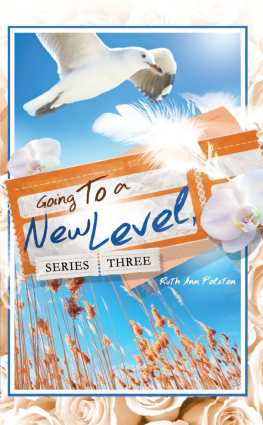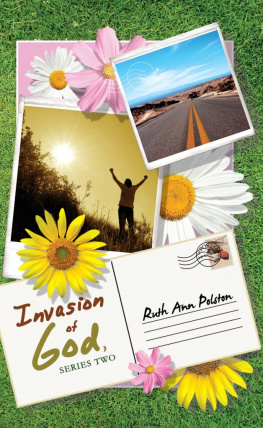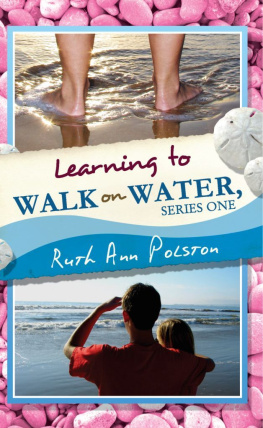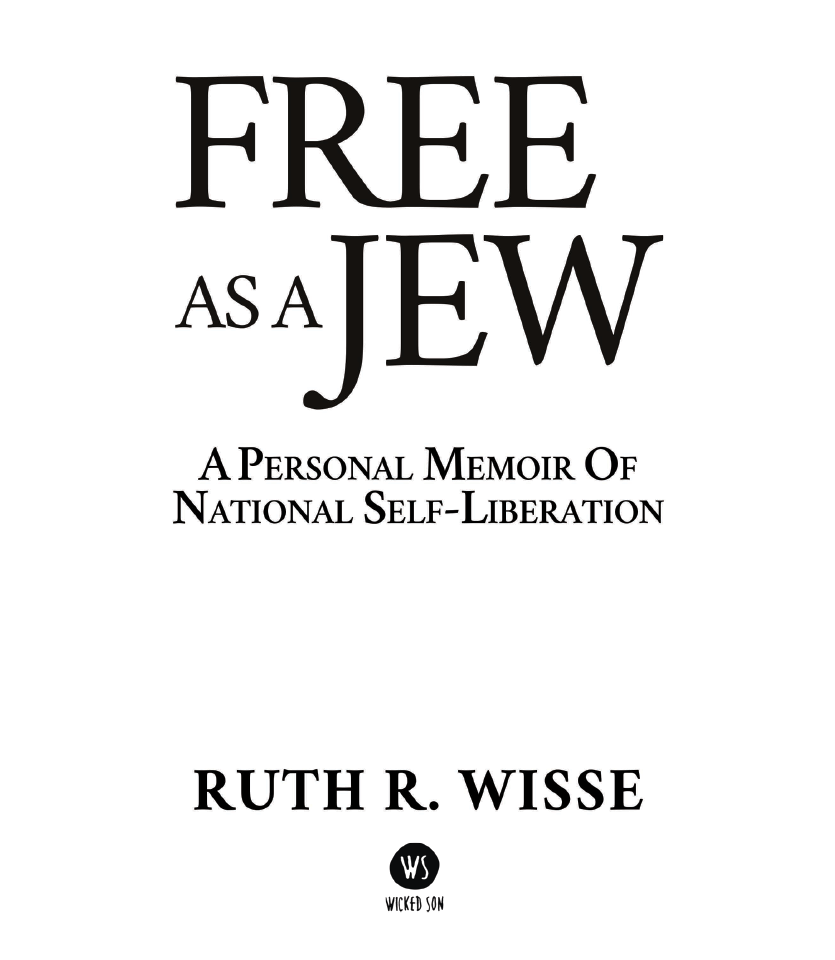
A WICKE D SON BOOK
An Imprint of Post Hill Press
ISBN: 978-1-6 4293-970-5
ISBN (eBook): 978-1-6 4293-971-2
Free as a Jew:
A Personal Memoir of National Self- Liberation
2021 by Ruth R. Wisse
All Right s Reserved
Cover Design by Ti ffani Shea
All people, locations, events, and situations are portrayed to the best of the authors memory. While all of the events described are true, many names and identifying details have been changed to protect the privacy of the people involved.
No part of this book may be reproduced, stored in a retrieval system, or transmitted by any means without the written permission of the author and publisher.


Post Hill Press
New York Nashville
posthil lpress.com
Published in the United States of America
Contents
W hose life is worth writing about?
Growing up in Canada, in the 1940s and 50s, I thought everything important in the world happened elsewherein Europe where I came from or in the Land of Israel where the Jewish people came from. During the warwhich is how we always referred to the Second World WarI would return from school to find my mother inconsolable over a letter that had arrived from over there about one or more murdered family members. A letter was once delivered to Leon Rojskes, Canada, although that was no longer Fathers registered name; it had somehow reached us, courtesy of the dedicated postal service, from a no-longer-reachable sender. After the war people began arriving, still miraculously alive, to fill in news of those who werent.
My childhood perception was not entirely false. All that made our lives remarkable was the absence here of what was happening over there: cruelty, hardship, starvation, inventive new forms of slaughter, and in Palestine, the unaccountably cruel behavior of the British who did not allow the Jews into their own land. Decades later, when Mel Brooks quipped, Tragedy is when I cut my finger. Comedy is when you fall into an open sewer and die, I remembered my fathers concern the day I accidentally sliced the back of my hand on a piece of broken glass and he bandaged it up rather than take me to the hospital. We both knew not to make too much of it. That may have been the very day my Bialystok cousins were shot, or my Kovno cousins transported to their death. We did not mock her logic when our mother told us to eat the crust because children were going hungry in Europe.
The restorative side of history likewise began to unfold not among us but where the Jewish homeland, under foreign domination for two thousand years, was being reclaimed. These were events we heard about at home and school, and at assemblies called to celebrate the achievements of the nascent state of Israel and to join us in solidarity with its defense. Foreign affairs were our domestic preoccupation. I did not wish to be in those more eventful places, but I knew that ours was not as consequential. The people who experienced or made that history would have something important to write about.
Meanwhile, where we lived, memoirs by nonfamous people tended to be about hardships overcome. Men and women who had wrestled with poverty, family trauma, physical disability, addiction, rape, racism, and discrimination could, through their stories, inspire grit and endurance in others. Between bouts at graduate school, I read Joanne Greenbergs I Never Promised You a Rose Garden, a personal story of teenage schizophrenia that is fictionalized, to be sure, yet revelatory about what I had not experienced and could only learn about in books.
Mine is no such tale. During the most momentous period in Jewish history, I had been whisked away from the centers of action to a land of peace and prosperity where a child could work to become anything she reasonably wanted. I came of age during the quarter century of grace between the establishment of Israel in 1948 and the 1975 passage of Arab-Soviet sponsored UN resolution 3379 defining Zionism as a form of racism and racial discrimination. During that interval, liberal democracy in North America was growing more confident, having triumphed over fascism and rallied against communism in the Soviet Union. In those precious years I tried to integrate my Jewish culture into my land of citizenship, certain that both would benefit from the give and take. I continue to think that they do.
But the passage of that infamous resolution marked the turning point from anti-Semitism that targets Jews in dispersion into anti-Zionism that targets Jews in their homeland. The regional Arab war against Israel morphed into the ideology of Jew blame that soon penetrated North America, undermining our liberal democracy, which is the actual target of anti-Jewish politics. All tyrannies, I realized, were not anti-Semitic, but all anti-Jewish ideologies are antiliberal. As a member of the Jewish people and dedicated student of modern Jewish literature, I was alert to the outsized role of Jews in political history, and what I saw unfolding was the erosion of the liberal confidence and strength I had come to rely on. Defense of Israel had become the Maginot Line against the enemies of our freedom, and as coalitions of grievance gained intersectional force in the media, the academy, and in the streets, I saw that line buckling before my eyes.
So I find myself at the heart of world events after all, a combatant in the war over the future of America. What might have been a life of uninterrupted good fortune with only private setbacks came up against unwelcome social and political forces. Many of my compatriots misjudge our situation, mistaking the imperfections of democracy for its vices, condoning barbarity out of misguided sympathy, holding Jews responsible for the aggression against them, confusing regressive with progressive governance, and neglecting to fortify all that is good. This makes it necessary to reestablish the obvious. Since antiliberal ideologies work through inversion (freedom as oppression, merit as inequality, the Arab war against Israel as Israel against the Arabs, and so forth) it keeps getting harder to straighten the record. Not everyone is as good at this as George Orwell, who set the standard for exposing the duplicities of our animal farm. I went about this in my plainer way, and this memoir invites readers to judge whether I have fallen short.
How I might have enjoyed recounting my rich life of love, friendship, marriage, motherhood, the myriad dimensions of family experience, collegial interaction, and the intertwined joys of learning and teaching! Much of that private life continues and will hopefully continue until my last breath.
In this memoir, however, I figure as a creature of my time and place, whose reflections and actions tell an often-overlooked part of the national and international story. Most of North American Jewry does not vote as I do. Most of my academic colleagues do not teach as I do. When it comes to moral-political values, I have more in common with the deeply Christian year-round residents near our summer camp in the Adirondacks than with some of my younger relatives. From an American perspective this is all to the goodless so from a Jewish perspective. The loss of Jewish and liberal moral self-confidence, which is the inevitable by-product of anti-Jewish and antiliberal politics, is the surest sign of civilizational decline. The last part of this book registers this apprehension.
Next page
